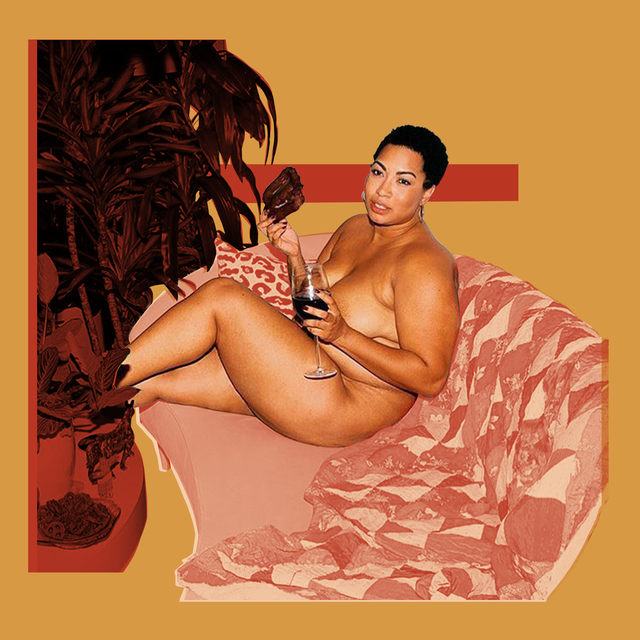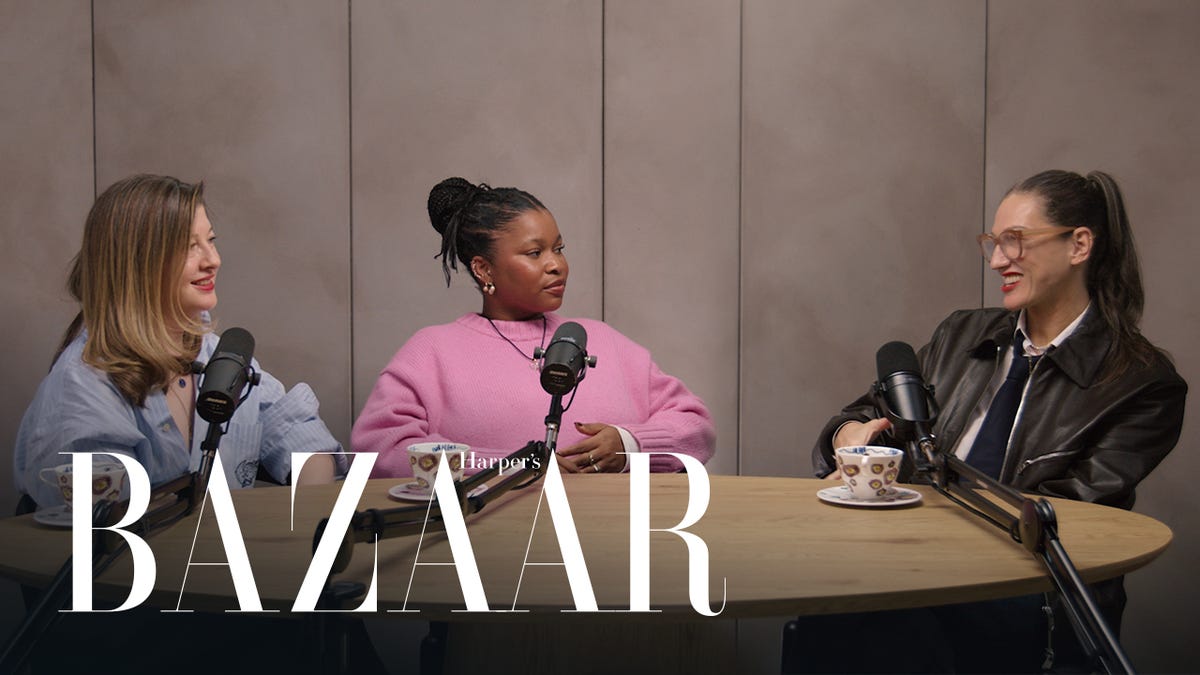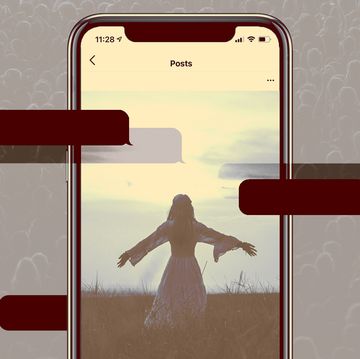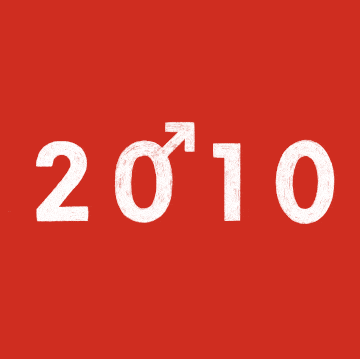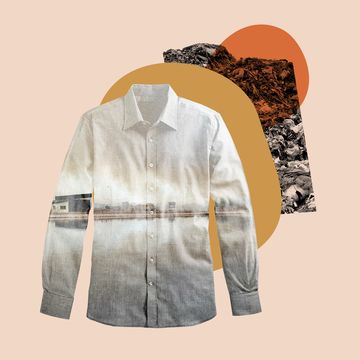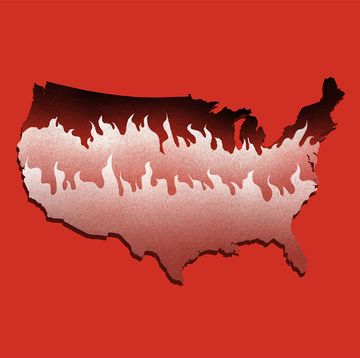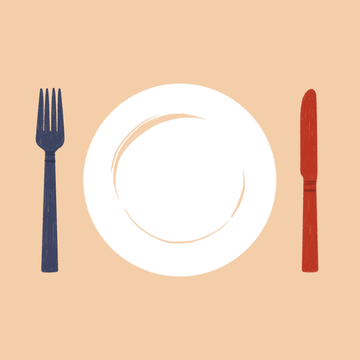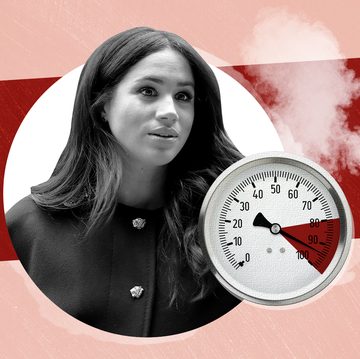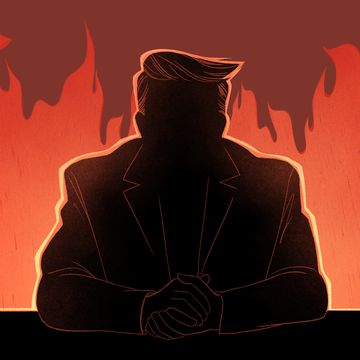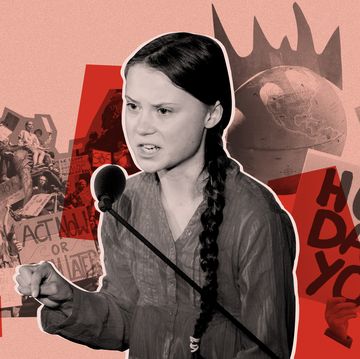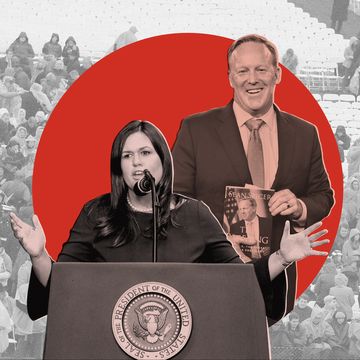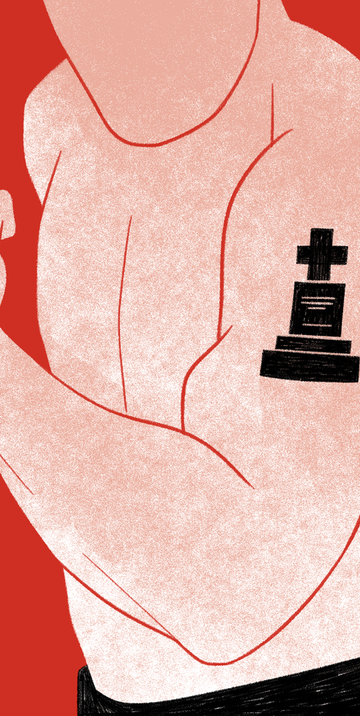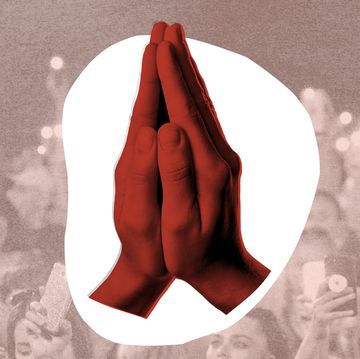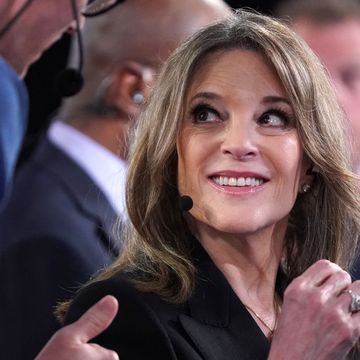Descriptors of my 5'9" frame include: Tall, brown, fat, soft, and curvy. I love my body. I love the way it moves when I dance, the way it has carried me for 30 years, and the way it changes over time.
Recently, I posed for the iconic photographer (and sweet friend of mine) Sarah Bahbah. She asked if I would be a part of her photo series, Sex and Takeout, a collection of vivid portraits of her chosen subjects, nude and eating the food they love. I’ve never agreed to anything quicker in my life.
On the day of the shoot, Sarah was dipping a giant Auntie Anne's pretzel into just-melted milk chocolate, with Malbec offered on heavy pour. Beyonce played in the background while I stripped down and posed on her pink velvet couch, glass of wine in hand and chocolate pretzel at my lips.
I was so proud and excited about the outcome of the shoot that almost immediately I decided to put the photo on social media. Posting such a revealing and intimate take on who I am as a woman wasn't a point of contention, but instead a chance to celebrate a side of me that isn't always captured. My followers had seen the depths of my mind, so this body shouldn’t have rocked too many boats.
At first, I got the kind of encouragement my followers come through with on a consistent basis. The “Yes girl!” and the “Okay glow!” and the “I see you queen!” Of course, there were trolls who had their say—people with a profile picture of a cat cartoon, zero followers, and zero posts who were letting me know how inappropriate my body was for their internet viewing, and warning me that unfortunately, I would never get a job now.
But then there was something else I noticed. I was getting dozens of comments with the best of intentions under the guise of encouragement, but they missed the mark—quite a bit. Comment after comment told me how brave I was for posting nude photos of myself. I was confused, and a little offended.
What is brave about my existing happily in my body? What is brave about showing up for my love of self, instead of for the gaze of white or male beauty standards? What is brave about being seen? Being visible?
I began to question whether the same statements would have been made if I was a size 4? Not often do I see thin bodies being hailed as social martyrs of courage and bravery for posing nude and showing skin.
Telling me that I’m “brave” for simply existing just as I am was a thinly-veiled projection of how people actually feel about a body that looks like mine. You’re what I understand as a body that is not enough, they think to themselves, but you push through with bravery and post that not-enough body anyway.
I often have to have the conversation with people explaining that intent does not erase impact. This lesson applies to the ways in which we project and articulate our feelings about other bodies.
While I believe that every single person who told me I was brave had the intention to offer those words as a compliment, I couldn't shake the stark difference in how my body was being perceived and projected upon as opposed to the nude bodies of others.
I recently shared this experience at a storytelling event, where several people admitted their own frustrations with being called brave simply for existing: a dancer with a cleft lip, a model with a prosthetic leg, a mother who fought and beat cancer. Each of them relayed to me with furrowed brows that people were constantly calling them “brave,” as though they had a choice to push through the things they were experiencing—the parts of them that just are.
And I'm not the first to have this conversation. This frustration with our existence being heralded as brave has been voiced by various communities from those with chronic illness, to the trans community, to those who have disabilities.
Consider who you are calling brave and what that statement means not just for your own understanding of how someone may be existing in the world, but what your words might signal for them.
